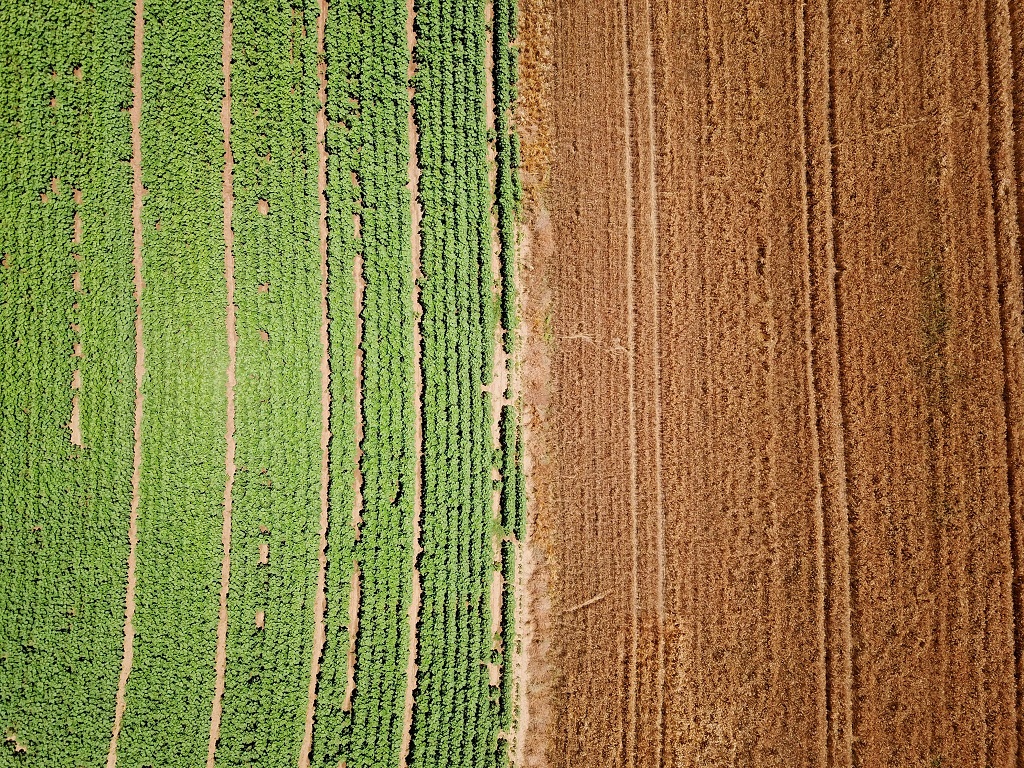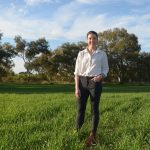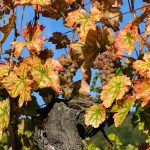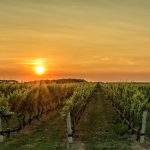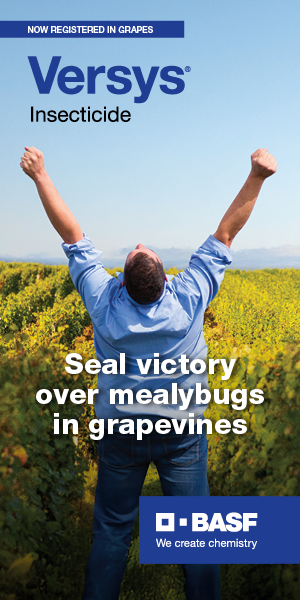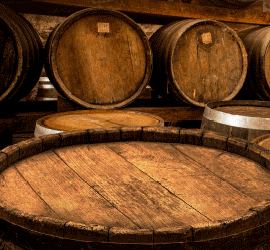Australian agriculture is set to benefit from a wide range of new farmer-led research, with Nuffield Australia last night revealing details of its bumper crop of 2024 Scholars.
Twenty-five scholars will travel the world in the next 12 months, studying topics as diverse as drought resilience, climate change, drones, genetics, machine harvesting and agricultural policy.
Scholars hail from across the agricultural landscape, with backgrounds in livestock production, cropping, horticulture, fishing and management, among others.
The announcement was made in Perth, where the Nuffield community gathered at a gala presentation dinner at Optus Stadium.
Nuffield Australia CEO and 2013 Scholar, Jodie Redcliffe, says the organisation is excited to award additional scholarships this year, thanks largely to support from the Australian Government’s Future Drought Fund.
Five Nuffield ‘Drought Resilience Scholarships’ have been awarded for 2024, with awardees Ben Poschelk, Caitlin Herbert, Claudia Benn, Michael Taylor and Natalie Schlitz to undertake research that will help develop and support new ideas to manage dry conditions for longer.
“The Drought Resilience Scholars will be investigating innovative practices to help Australian farmers and communities withstand the impacts of drought,” Redcliffe said.
“These scholarships are awarded in addition to those funded by Nuffield’s generous long-term investors, which will lead to much-needed research in their sectors.”
Each scholar receives a $35,000 bursary to invest in travel and research. They will visit, learn from, and collaborate with some of the world’s leading agricultural businesses and research institutions.
“For more than 70 years Nuffield Scholars have travelled the world, bringing home the latest intelligence, farming practices and developments to share with their peers. Their scholarship is an investment in themselves and their capacity to lead their business, their community and their industry by widening their knowledge and networks,” Redcliffe said.
“The research is driven by farmers, in collaboration with their respective industries – a proven recipe for success, which helps scholars learn and their industries prosper.”
2024 Nuffield Scholars
NSW
- Jack Courts from Wellington. Supported by Meat and Livestock Australia, Jack will study maternal efficiency in ruminant animals. This research is expected to help reduce waste, aligning with the industry’s 2030 climate targets.
- Caitlin Herbert from Eugowra. Supported by the Future Drought Fund, Caitlin will research the role cattle feedlots can play in ‘drought-proofing’ the Australian beef supply chain.
- Leoni Kojetin from Alstonville. Supported by the RAS Foundation, the charitable arm of the Royal Agricultural Society of NSW (RAS), Leoni seeks to examine the effects of a changing climate on macadamias. She will also investigate sustainable practices that can provide solutions for Australian growers.
- Katrina ‘Treen’ Swift from Parkes. Supported by Graincorp, Treen will investigate the benefits artificial intelligence could bring to grain growing operations.
- Stephanie Tabone from Sydney. Supported by Hort Innovation under the Vegetable Research and Development Levy, Stephanie will investigate the use of legumes as an alternative nitrogen source for vegetable cropping systems.
- Michael Taylor from Kentucky, between Armidale and Tamworth. Supported by the Future Drought Fund, Michael will study solutions to the challenges that hinder the widespread adoption of agroforestry.
Queensland
- Claudia Benn from Injune. Supported by the Future Drought Fund, Claudia will extend on the work of previous scholars to help Australian farmers farm more profitably in alignment with natural systems.
- Kylie Braes from Normanton, has been awarded the Northern Pastoral Scholarship, supported collectively by the Australian Agricultural Company (AACo), Consolidated Pastoral Company (CPC), Elders and S. Kidman & Co. Kylie will study an emerging cost-effective blood testing technology for cattle.
- Sally Higgins from Allora. Supported by AgriFutures Australia, Sally will learn about the largescale land use changes resulting from climate change.
- Phillipa ‘Pippa’ Jones from Goondiwindi. Supported by Public Sector Pension Investment Board (PSP Investments), Pippa is looking to address farmers’ knowledge gaps around carbon markets and carbon neutrality.
- Jacob Moon from St George. Supported by Hort Innovation, using the Onion Research and Development Levy, Jacob will investigate ways to increase the use of machine harvesting in onion crops, as well as how post-harvest management can increase shelf life for onions and garlic.
- Ben Poschelk, who is based in Brisbane and farms at Glen Innes. Supported by the Future Drought Fund, Ben seeks to undertake a global analysis of resilience thinking and change – learning from people and communities who have adapted to manage adverse weather conditions.
South Australia
- Thomas Cosentino from Victor Harbor. Supported by the Fisheries Research and Development Corporation, Thomas will review food and fibre policy around the globe, identifying ways to facilitate the succession of new generations into food and fibre production businesses.
- Justin DellaZoppa from Waikerie. Supported by Woolworths, Justin will investigate how new technologies can help advance the seed potato industry.
- Paul McGorman, who farms on Kangaroo Island. Supported by the Grains Research and Development Corporation, Paul is curious about the potential for agricultural drones as an alternative piece of machinery for crops, pastures and other rural industries.
Tasmania
- Anna Cotton from Swansea. Supported by Rabobank, Anna will focus on how economic and climatic influences have affected family farms in Europe, North and South America and New Zealand.
- Kirsty Dickenson from Devonport. Supported by Hort Innovation under the Rubus Research and Development Levy, Kirsty will investigate ways blackberry and raspberry growers can manage their resources effectively to maximise sustainability.
- David Roberts-Thompson from Table Cape. Supported by the Tasmanian Institute of Agriculture and JM Roberts Charitable Trust, David will study opportunities for biological priming of soils to improve crop resilience and production.
Victoria
- Catherine Marriott from Yarrawonga. Supported by AgriFutures Australia, Catherine will research the impacts of global Environmental, Social & Governance (ESG) policies on Australian farmers.
- Natalie Schlitz from Kerang. Supported by the Future Drought Fund, Natalie seeks to investigate weaknesses that threaten the viability of the Australian fodder export sector when faced with a water-limited future.
- Nick Young from Flinders. Supported by the William Buckland Foundation, Nick will investigate ways to reduce waste generated by organic garlic production.
Western Australia
- Shannen Barrett from York. Supported by the Grain Industry Association of WA (GIWA) and the Processed Oat Partnership, Shannen will study development opportunities for Australian oats.
- Laura Bennett from Scaddan. Supported by CSBP Fertilisers, Laura will study the risks and opportunities to continuous cropping systems that come with a changing climate.
- Ashley Wiese from Highbury, near Narrogin. Supported by CBH Group, Ashley will research models for how export-dominated farming regions can move from being price takers to price makers.
ACT
Nuffield Australia and CSIRO have an established partnership that promotes understanding between Australian scientific research and our agricultural industry. In 2023, Dr Amy Logan will be the seventh CSIRO scientist to participate in two key components of the Nuffield program: the Contemporary Scholars Conference (CSC) and the Global Focus Program (GFP).
Are you a Daily Wine News subscriber? If not, click here to join our mailing list. It’s free!
